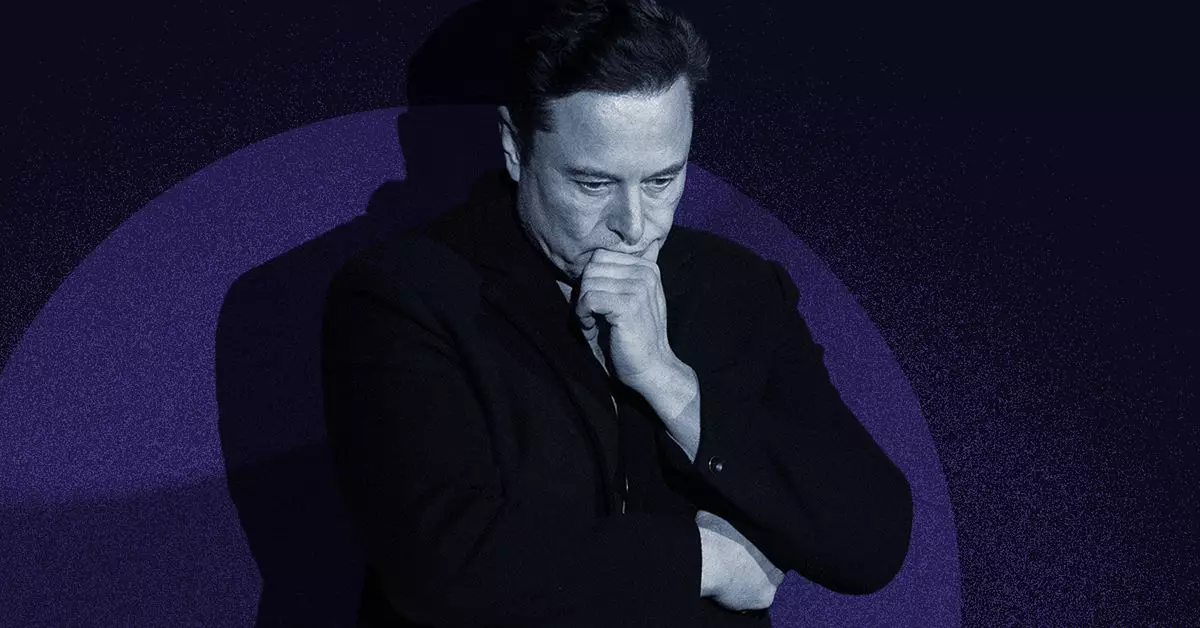Elon Musk, the multifaceted entrepreneur known for his ventures in technology and space exploration, has recently taken on the role of co-leader of the Department of Government Efficiency (DOGE) advisory group. This initiative, despite being in its infancy, has already sparked significant controversy as Musk utilizes his massive social media platform on X (formerly Twitter) to call out individual government employees for perceived inefficiencies. The implications of this behavior raise important questions about privacy, accountability, and the nature of leadership in government oversight.
Musk’s approach includes singling out specific federal employees, exemplified by his recent focus on Ashley Thomas, the Director of Climate Diversification at the US International Development Finance Corporation. By sharing posts that criticize her position and declaring it a “fake job,” Musk has ignited a storm of online harassment against Thomas. This tactic, while seemingly aimed at promoting accountability, veers into the realm of personal attacks that can have lasting ramifications not only for the individuals involved but also for the broader workforce within government institutions. The usage of his platform to incite these discussions suggests a concerning trend of turning governmental criticism into personal vendettas.
The reaction to Musk’s posts has been predictably volatile, leading to an avalanche of memes and hostile comments aimed at Thomas. This environment of harassment raises ethical concerns, with critics like Everett Kelley from the American Federation of Government Employees characterizing these actions as deliberate attempts to sow fear among federal employees. Such behavior may discourage qualified professionals from pursuing or maintaining public service roles, thereby exacerbating the very inefficiencies Musk claims to be fighting against. The fear of becoming a target for public humiliation could lead to a chilling effect that stifles innovation and reduces the willingness of individuals to engage in governmental roles.
Musk often frames his actions within the context of free speech, suggesting that his commentary is part of a larger discourse on accountability. However, this justification becomes problematic when it promotes a culture of hostility rather than constructive criticism. The line between holding individuals accountable and engaging in harassment is blurred, especially when the megaphone of social media amplifies his views to millions. This not only misrepresents the intent of accountability but also raises concerns about the ethical responsibilities that come with wielding such influence in public discourse.
As the DOGE initiative progresses, the potential for additional public targets looms large. Both Musk and his co-leader Vivek Ramaswamy have indicated that they will continue to operate in a transparent manner, frequently seeking public input through polls on X. While transparency is certainly a noble goal, the way this transparency is orchestrated matters profoundly. If Musk’s method of public engagement is characterized by similar tactics as used in the past, it risks morphing into a witch hunt rather than fostering genuine government improvement.
The intersection of celebrity oversight and government efficiency advocacy poses significant risks. Elon Musk’s actions underscore a precarious dynamic wherein the quest for accountability may transform into a vehicle for personal attacks and harassment. As discussions around the future of DOGE unfold, society must grapple with how technology, influence, and accountability can coexist without undermining the very institutions meant to serve the public good.


Leave a Reply